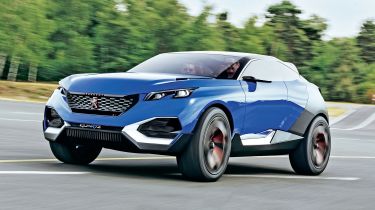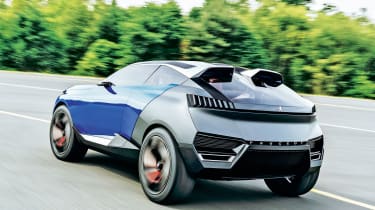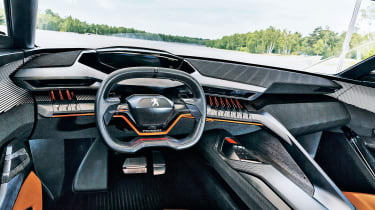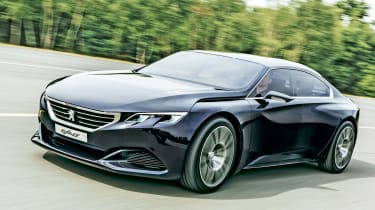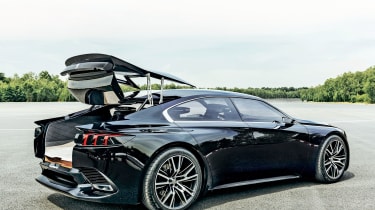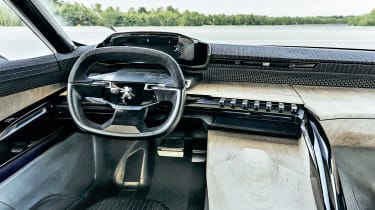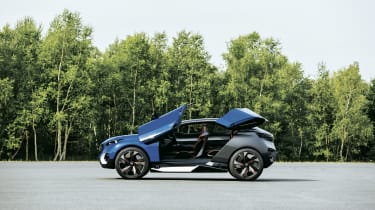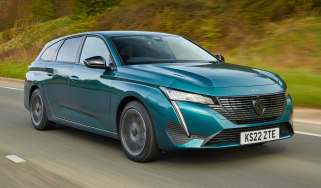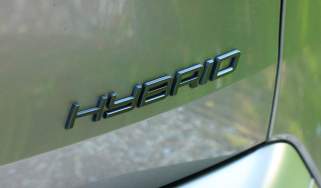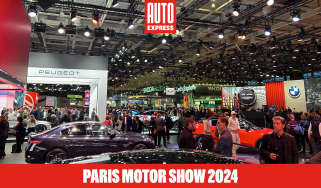We drive bold vision of Peugeot's future
On the road in striking plug-in Quartz SUV and Exalt saloon concept cars
Often, the primary function of a concept car is to be little more than a slinky piece of motor show eye candy. However, Peugeot takes a rather different approach.
The Quartz SUV and Exalt saloon not only provided us with a sneak preview of what we can expect from Peugeot’s future model ranges when they were revealed last year, but, more than that, they also work.
Beneath the angular body of the Quartz and svelte lines of the Exalt, both concepts use a hybrid powertrain combining tuned versions of Peugeot’s 1.6-litre turbo petrol engine from the RCZ with electric motors – and now we’ve driven them.
The newer of the two concepts is the Quartz SUV. Seen for the first time at the Paris Motor Show last year, it gave a glimpse of Peugeot’s forthcoming crossovers and SUVs, such as the next-generation 3008 and 2008. The Quartz blends trademark SUV styling cues with those of a coupé, seen in the sloping rear and flared arches. A shallow windowline and steeply raked rear screen – complete with a split spoiler – give the car sporty proportions like the Range Rover Evoque or BMW X4.
But the drama doesn’t stop there. To allow you to access the cabin, the doors tilt out then fly upwards, while the bodywork around the C-pillar moves in the opposite direction, rising over the rear, making it look like something from the Transformers film set.
By comparison, the Exalt is rather restrained. The panel lines are softer, the profile sleeker and the overall design more subtle. Peugeot originally revealed the Exalt at the Beijing Motor Show in 2014 and then showcased a European version at the Paris Motor Show later that year; the latter is the car you see here. Changes were minimal and focused on the exterior colour scheme, with the 4.7-metre length – only a little shorter than a 508 saloon – remaining the same.
While Peugeot has taken a different approach to the way the concepts look on the outside, the family connection is more evident inside. Both use a development of the i-Cockpit found in the 308, but here it’s pushed to its limits of luxury and style.
Buttons and switches have been kept to a minimum, with the bulk of driver information coming through a head-up display and dash-mounted screens.
In terms of materials, both cabins are a cocktail of wood, leather and brushed metals. Peugeot has had nearly a year to fine-tune the concepts, so the execution and finish are almost flawless, unlike the hastily constructed cabins of some concepts.
The company doesn’t currently offer a plug-in hybrid in any of its showroom cars, but as these concepts feature the same powertrain, bosses seem to be keen on putting the technology into production.
The Quartz is the more powerful of the two, developing 493bhp from the 1.6-litre four-cylinder turbo and two electric motors – one attached to each axle. Running purely on electricity, Peugeot claims a range of 30 miles is possible, similar to what you can achieve from production plug-in hybrids. In the Exalt, the same powertrain system develops a more modest 335bhp, which is mainly down to the fact there is only one electric motor supplementing the power.
As is the way with driving concept cars, impressions tend to be limited due to the lower speeds imposed because of rarity and value. We couldn’t get to grips with the plug-in hybrid system as both cars were driven solely by the 1.6-litre engine for the purpose of our test. The engine is slightly more vocal than it is in the RCZ or 208 GTi, partly because the concepts don’t have to go through the same stringent tests as production models. However, the Quartz and Exalt feel solid on the move.
Both use the 308’s EMP2 chassis, so there’s decent body control, even in the high-riding Quartz. The SUV also has adjustable springs which change ground clearance from 300mm to 350mm.
It’s rare to find a concept that drives as well as it looks, but the design flair and technology of these models show that Peugeot’s forward thinking will continue to drip down to production models.
Verdict
When it comes to developing wacky concept cars with some weighty real-world significance, few do it better than Peugeot. Neither the Quartz nor the Exalt will make it into showrooms as they look, but the technology and evolutionary interior design clearly show the brand’s vision for the future. Sure, there’s little to learn in terms of how they drive, but if Peugeot’s future production cars are able to inherit some of the design flair seen here, then success is surely in sight.
Find a car with the experts
